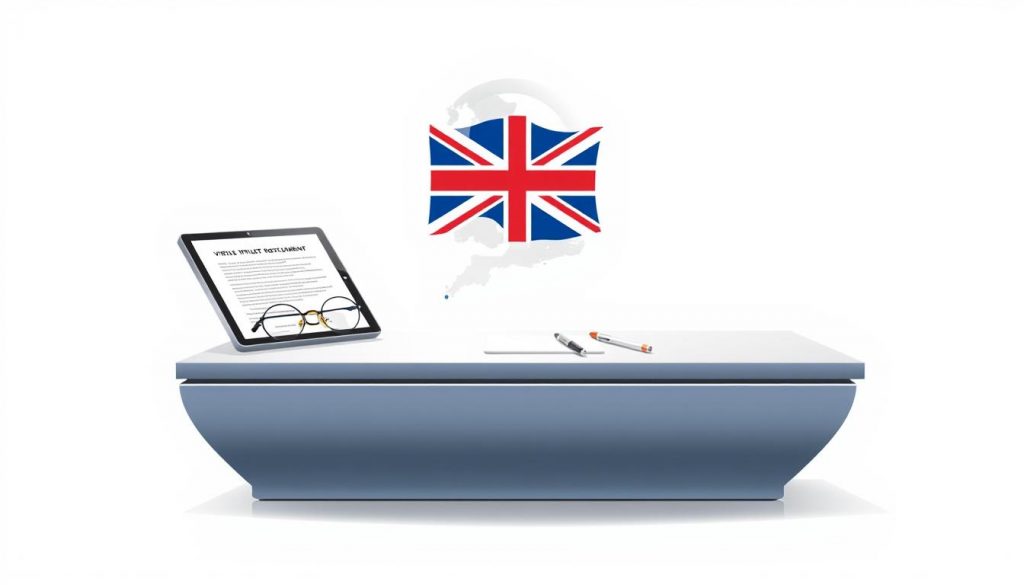As technology advances, our digital footprint grows, making it essential to consider how our digital assets will be managed after we’re gone. Digital assets include social media profiles, cryptocurrency, and online subscriptions.
We understand the importance of incorporating digital assets into estate planning. Without a plan, these assets can be lost or mismanaged, causing unnecessary stress for loved ones. By using trusts, we can ensure that digital assets are distributed according to one’s wishes. For more information on estate planning, visit our website at https://mpestateplanning.uk/.
Key Takeaways
- Incorporating digital assets into estate planning is crucial.
- Trusts can be used to manage and distribute digital assets.
- Proper planning can prevent loss or mismanagement of digital assets.
- Seeking professional guidance can ensure that digital assets are handled according to one’s wishes.
- Regularly reviewing and updating estate plans is essential.
Understanding Digital Assets: What They Are
As we increasingly live our lives online, the concept of digital assets has gained significant relevance. Digital assets encompass a wide range of online accounts and files that hold financial and sentimental value.
Definition of Digital Assets
Digital assets refer to any content or information stored digitally that has value to an individual or business. This can include personal files, online accounts, and various forms of digital media.
We define digital assets as any digital content that is owned or controlled by an individual or organisation. These assets can be crucial for both personal and financial reasons.
Examples of Common Digital Assets
Some common examples of digital assets include:
- Social media profiles
- Email accounts
- Digital photos and videos
- Cryptocurrency wallets
- Online banking and financial accounts
- Digital music and e-book libraries
These digital assets can hold significant financial and sentimental value, making them an essential part of one’s estate.

Importance of Digital Assets in Estate Planning
Including digital assets in estate planning is crucial to prevent loss or inaccessibility. Without proper planning, digital assets can become inaccessible to heirs, leading to potential financial loss and emotional distress.
| Digital Asset Type | Importance in Estate Planning | Potential Consequences of Omission |
|---|---|---|
| Financial Accounts | Access to funds | Loss of financial resources |
| Social Media | Preservation of memories | Loss of personal history |
| Cryptocurrency | Secure transfer of assets | Irretrievable loss of assets |
By understanding and planning for digital assets, individuals can ensure that their digital legacy is protected and passed on according to their wishes.
The Rise of Digital Assets in Estate Planning
As digital assets become more integral to our lives, their role in estate planning is gaining prominence. The way we manage and pass on our digital assets is becoming increasingly important, necessitating a shift in how we approach estate planning.
Statistics on Digital Asset Ownership
The rise of digital assets has led to a significant increase in their ownership among individuals. Recent statistics show that a substantial proportion of the UK population now owns some form of digital assets, including cryptocurrencies, digital savings, and online investments.
| Type of Digital Asset | Percentage of Ownership |
|---|---|
| Cryptocurrency | 15% |
| Digital Savings | 25% |
| Online Investments | 30% |
This growing ownership necessitates the inclusion of digital assets in estate plans to ensure they are properly managed and distributed according to the owner’s wishes.
Changing Trends in Inheritance
The increase in digital asset ownership is changing trends in inheritance. Traditional notions of inheritance are being redefined as digital assets become more prevalent. It’s essential to understand these changes to ensure that estate plans are adaptable and comprehensive.
Some key trends include:
- Increased complexity in estate administration due to the diverse nature of digital assets.
- A growing need for professional advice on managing and valuing digital assets.
- The importance of clear instructions for the management and distribution of digital assets after one’s passing.
By understanding these trends and statistics, we can better prepare for the future and ensure that our estate plans are equipped to handle the challenges and opportunities presented by digital assets.
Trusts: A Brief Overview
In the UK, trusts have become an essential tool for managing and distributing digital assets effectively. A trust is a legal arrangement that allows assets to be held and managed by trustees for the benefit of beneficiaries.
Definition and Purpose of a Trust
A trust is established when a settlor transfers assets to trustees, who are then responsible for managing these assets according to the trust deed. The primary purpose of a trust is to ensure that the settlor’s wishes are carried out, providing a structured approach to asset distribution.
Trusts offer a flexible and secure way to manage digital assets, ensuring they are distributed according to the settlor’s intentions. By appointing trustees, settlors can ensure their digital legacy is managed effectively.
Types of Trusts Available in the UK
The UK offers various types of trusts, each serving different purposes. Some common types include:
- Bare Trusts: Where the beneficiary has absolute entitlement to the trust assets.
- Interest in Possession Trusts: Beneficiaries receive income from the trust assets.
- Discretionary Trusts: Trustees have discretion over how to distribute trust assets.
For more detailed guidance on setting up a trust, including how to fund it, you can visit our page on how to fund a trust in the.
Understanding the different types of trusts available is crucial for selecting the most appropriate one for your digital assets. By doing so, you can ensure that your digital legacy is protected and distributed according to your wishes.
Why Consider a Trust for Digital Assets?
As digital assets become increasingly integral to our lives, the importance of trusts in managing them cannot be overstated. In today’s digital age, our online presence and digital holdings are just as valuable as traditional assets.

Benefits of Using Trusts for Digital Assets
Using a trust for digital assets can provide several key benefits, including:
- Efficient management and distribution of digital assets
- Maintenance of privacy, as trusts are not publicly recorded like wills
- Protection against potential disputes among beneficiaries
By placing digital assets in a trust, individuals can ensure that their wishes regarding these assets are respected and carried out smoothly.
Protection from Probate Delays
One of the significant advantages of using a trust is avoiding the delays associated with probate. Probate can be a lengthy process, and when it comes to digital assets, timely access is often crucial.
Probate delays can lead to complications, such as:
- Temporary loss of access to digital assets
- Potential for assets to become obsolete or devalued due to lack of maintenance
- Increased stress for beneficiaries during an already difficult time
By utilizing a trust, individuals can bypass these issues, ensuring that their digital assets are managed and distributed according to their wishes without unnecessary delay.
Legal Framework for Digital Assets in the UK
Understanding the legal landscape for digital assets in the UK is crucial for effective estate planning. The legal framework governing digital assets is evolving, with significant implications for how these assets are managed and distributed upon an individual’s passing.

Relevant Legislation
The UK has seen a gradual development in legislation to address the complexities of digital assets. Key regulations include:
- The Data Protection Act 2018, which impacts how personal data is handled, including data stored in digital assets.
- The Financial Services and Markets Act 2000, which regulates certain financial products that may be considered digital assets.
These legislative developments underscore the importance of staying informed about the legal requirements surrounding digital assets.
The Role of Executors and Trustees
Executors and trustees play a pivotal role in managing digital assets according to the deceased’s wishes. Their responsibilities include:
- Identifying and valuing digital assets.
- Ensuring compliance with relevant legislation, such as data protection laws.
- Distributing digital assets according to the will or trust deed.
By understanding the roles of executors and trustees, individuals can better plan for the management of their digital assets after they pass away.
Setting Up a Trust for Digital Assets
In the UK, setting up a trust for digital assets is an effective way to safeguard your digital estate. As we discussed earlier, digital assets are becoming increasingly significant in estate planning. A trust can provide a structured approach to managing these assets, ensuring they are distributed according to your wishes.

Steps to Establish a Trust
Establishing a trust for digital assets involves several key steps:
- Drafting the Trust Deed: This legal document outlines the terms of the trust, including the assets to be included and the beneficiaries.
- Selecting Trustees: Trustees are responsible for managing the trust assets. Their role is crucial in ensuring that your digital assets are handled according to your instructions.
- Transferring Assets: Once the trust is established, the digital assets need to be transferred into the trust. This may involve complex procedures, depending on the type of digital assets.
For more detailed guidance on estate planning for digital assets, you can refer to our article on estate planning for the digital age.
Selecting the Right Trustee
Choosing the right trustee is a critical decision when setting up a trust for digital assets. The trustee should be someone who is not only trustworthy but also technically savvy enough to manage digital assets effectively. Considerations include:
- Technical Expertise: The ability to understand and manage various types of digital assets, such as cryptocurrencies and online accounts.
- Legal Compliance: Knowledge of the legal requirements and regulations surrounding digital assets in the UK.
- Discretion and Integrity: The trustee should be able to act impartially and in the best interests of the beneficiaries.
By carefully selecting a trustee and following the necessary steps to establish a trust, you can ensure that your digital assets are protected and passed down to your beneficiaries smoothly.
Valuing Digital Assets for Trusts
When it comes to trusts, accurately valuing digital assets is crucial for effective estate planning. Digital assets, such as cryptocurrencies and online accounts, can be particularly challenging to value due to their volatile nature and the complexity of their ownership structures.
Methods for Valuation
There are several methods we can use to value digital assets for trusts. These include:
- Market value assessment: This involves determining the current market price of a digital asset, such as the value of Bitcoin or Ethereum on a given day.
- Valuation by analogy: This method involves comparing the digital asset to similar assets that have been valued.
- Income approach: This method estimates the value of a digital asset based on the income it generates.
Each of these methods has its advantages and disadvantages, and the choice of method will depend on the specific circumstances of the digital asset and the trust.
Common Challenges in Valuation
Valuing digital assets can be complex, and there are several common challenges we encounter. These include:
| Challenge | Description |
|---|---|
| Volatility | Digital assets, such as cryptocurrencies, can fluctuate rapidly in value, making it difficult to determine their value at any given time. |
| Uniqueness | Some digital assets, such as unique digital art or collectibles, can be difficult to value due to their one-of-a-kind nature. |
| Tax Implications | The valuation of digital assets can have significant tax implications, and it is essential to consider these when valuing assets for trusts. |
Accurate valuation is essential for ensuring that digital assets are distributed fairly and in accordance with the wishes of the trust creator. It also helps in managing tax liabilities and ensuring compliance with UK trust regulations.
Managing Digital Assets within a Trust
The role of trustees in managing digital assets is multifaceted, involving both legal and practical responsibilities. As trustees, we have a fiduciary duty to manage trust assets, including digital assets, prudently.
Responsibilities of Trustees
Trustees are tasked with the administration of the trust, which includes making decisions regarding the digital assets held within it. Their responsibilities encompass:
- Managing and protecting digital assets
- Ensuring compliance with the trust deed and relevant laws
- Making informed decisions about the distribution or retention of digital assets
Effective trusteeship requires a deep understanding of both the legal framework and the nature of the digital assets involved.
Tools for Digital Asset Management
To manage digital assets effectively, trustees can utilize various tools and strategies. These may include:
- Digital asset management software
- Secure password management systems
- Inventory and valuation tools for digital assets
By leveraging these tools, trustees can ensure that digital assets are managed efficiently and in accordance with the trust’s objectives.
Tax Implications of Trusts for Digital Assets
Understanding the tax implications of digital asset trusts is essential for effective estate planning. When holding digital assets in a trust, several tax considerations come into play, affecting the overall value of the assets passed on to beneficiaries.
Inheritance Tax Considerations
In the UK, inheritance tax (IHT) is a significant concern when it comes to trusts and digital assets. Generally, IHT is charged on the value of assets transferred into a trust. For digital assets, this could mean that the value of cryptocurrencies or other digital holdings at the time of transfer is subject to IHT. We must consider the implications of IHT on the overall estate and how it affects the distribution of digital assets.
Key Points to Consider:
- The value of digital assets for IHT purposes is typically their market value at the time of transfer into the trust.
- Certain types of trusts, such as bare trusts, are treated as transparent for IHT purposes, meaning the assets are considered to belong to the beneficiary.
- Other trusts may be subject to IHT charges, such as the periodic charge and exit charge.
Capital Gains Tax on Digital Assets
Capital Gains Tax (CGT) is another crucial aspect to consider when managing digital assets within a trust. CGT is charged on the gain made from the disposal of digital assets. When a trust disposes of a digital asset, the trustees must calculate the gain or loss and report it to HMRC.
CGT Considerations for Trustees:
- Trustees are responsible for reporting CGT on the trust’s tax return.
- The annual exempt amount for trusts is typically half that of individuals, so trustees must be mindful of this when disposing of digital assets.
- CGT rates applicable to trusts can vary, so it’s essential to stay updated on the current rates and any reliefs available.
By understanding these tax implications, we can better navigate the complexities of trusts for digital assets and ensure that our estate planning is both effective and tax-efficient.
Digital Assets and Succession Planning
Effective succession planning now requires careful consideration of digital assets to prevent future disputes. As our lives become increasingly digital, the assets we own online are becoming a significant part of our overall wealth.
Integrating Digital Assets into Your Will
Integrating digital assets into your will is a crucial step in ensuring that your digital legacy is managed according to your wishes. This involves not only listing your digital assets but also providing instructions on how you want them to be handled.
To effectively integrate digital assets into your will, consider the following steps:
- Make a comprehensive list of all your digital assets, including online accounts, cryptocurrencies, and digital files.
- Specify how you want each digital asset to be managed or distributed.
- Provide access details for your digital assets, such as passwords and login information.
Communicating Your Wishes
Communicating your wishes regarding your digital assets to your executors and beneficiaries is vital. Clear instructions can prevent confusion and disputes, ensuring that your digital legacy is respected.
Consider the following table to understand the importance of clear communication:
| Aspect | Without Clear Instructions | With Clear Instructions |
|---|---|---|
| Executor’s Role | Uncertainty and potential legal issues | Clear understanding of responsibilities |
| Beneficiary Understanding | Potential for disputes among beneficiaries | Reduced risk of misunderstandings |
| Digital Asset Management | Risk of assets being lost or inaccessible | Assets managed according to wishes |
By integrating your digital assets into your will and clearly communicating your wishes, you can ensure a smooth transition of your digital legacy. This not only protects your assets but also provides peace of mind for you and your loved ones.
Future Considerations for Digital Assets and Trusts
As we navigate the evolving landscape of digital assets, it’s crucial to stay informed about the latest developments. The world of digital assets is becoming increasingly complex, with new trends and challenges emerging regularly.
Emerging Trends in Digital Asset Management
The management of digital assets is undergoing significant changes, driven by technological advancements and shifting user behaviors. Some of the key trends include:
- The rise of decentralized finance (DeFi) platforms, which are changing how digital assets are managed and transferred.
- Increased adoption of artificial intelligence (AI) and machine learning (ML) in digital asset management.
- Growing importance of cybersecurity measures to protect digital assets from theft and fraud.
For more insights on the future of digital assets under Fintech regulation, visit Beaumont Capital Markets.
Legal Challenges Ahead
The legal landscape for digital assets is also evolving, with several challenges on the horizon. These include:
- Regulatory clarity: As digital assets become more mainstream, there is a growing need for clear and consistent regulations.
- Jurisdictional issues: The global nature of digital assets raises complex jurisdictional questions.
- Taxation: The tax treatment of digital assets is an area that requires further clarification.
Staying informed about these emerging trends and legal challenges is essential for effective estate planning and ensuring that your digital assets are managed according to your wishes.
Resources for Setting Up Trusts for Digital Assets
Setting up a trust for digital assets can be a complex process, but with the right guidance, you can ensure your digital legacy is protected. We recommend seeking professional advice from solicitors and trust companies who specialize in UK trust law for digital assets.
Expert Guidance
Professional services can offer tailored advice on trusts for digital assets in the UK, helping you navigate the intricacies of digital asset protection. They can assist in establishing a trust that meets your specific needs.
Digital Tools
Online platforms and tools can also provide valuable support in managing digital assets within a trust. These resources can help trustees and beneficiaries access and manage digital assets efficiently.
By combining expert advice with the right online tools, you can create a robust plan for your digital assets, ensuring they are safeguarded for the future.


